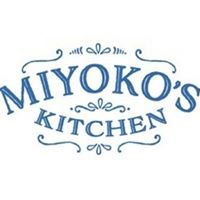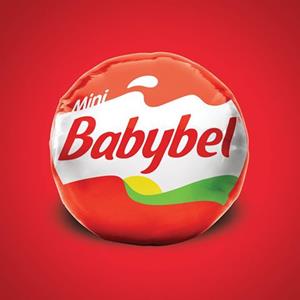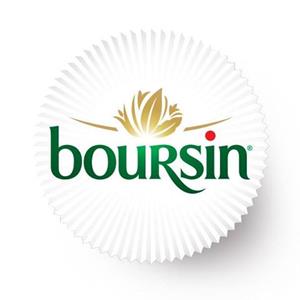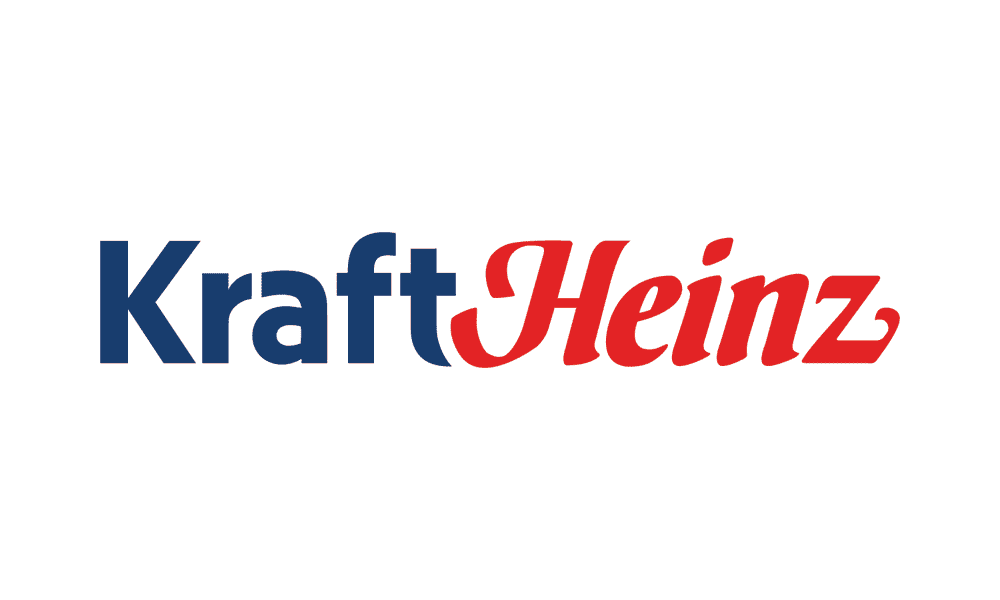Conventional Dairy Leaders Go Vegan, Animal-Free With New And Established Brands
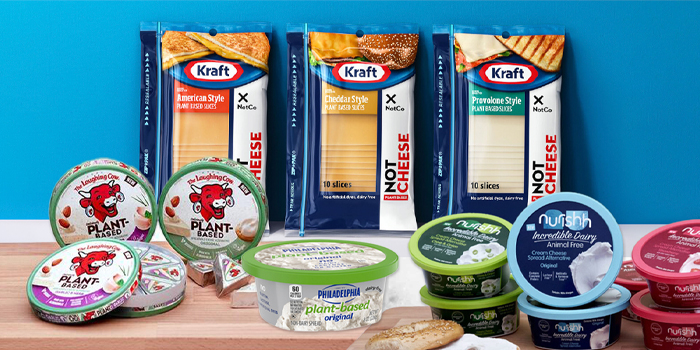
The vegan cheese market has aged; enough so that conventional dairy cheese makers are looking to the category as an opportunity to innovate and to extend the reach of their flagship cheese banners. But can these products help solidify the category’s long term growth?
In recent weeks, conventional cheese leaders like the Bel Group and Kraft have introduced a range of plant-based and animal-free alternatives including two snackable cheese wedges under the Laughing Cow brand (Bel) and three alternative varieties to the classic, conventional Kraft cheese slices, dubbed NotKraft Singles. The latter is the first creation from Kraft’s joint venture with food tech company NotCo.
Bel is also going deep into food tech: alongside the new Laughing Cow launch, the company debuted three new animal-free cream cheeses, created in partnership with precision fermentation company Perfect Day, under its dedicated plant-based Nurishh brand which launched in April. Bel Group has since announced partnerships with additional alt-dairy focused food tech companies including France-based Standing Ovation and Delaware-based Superbrewed Foods.
“By offering plant-based items, conventional brands have the opportunity to tap into key demographics, like Gen Z-ers, who are more likely to make buying decisions based on their climate impact compared to any other generation,” said Lisa Feria, CEO and Managing Partner of investment firm Stray Dog Capital. “This ultimately has a positive impact on the plant-based category… household brands have the sales and marketing firepower to get in front of more consumers and bring plant-based cheeses to people that aren’t necessarily out looking for it.”
Additionally, Kraft debuted plant-based varieties for two of its other iconic brands within the past month including vegan-friendly versions of Philadelphia cream cheese and Kraft Mac and Cheese. Bel Group, which operates a portfolio of cheese brands, rolled out a plant-based Babybel alternative earlier this year and a dairy-free Boursin in 2020.
While extending the platform of well-known cheese brands into the plant-based space may help drive trial with new consumers, vegan cheese experts remain skeptical that these products will have an impact on the category’s long term viability and new consumer awareness.
“This sector faces barriers that are similar to the plant-based category at-large when it comes to meeting consumers’ expectations for taste, texture, price and nutritional value,” said Feria. “In the beginning, creating plant-based products was more about replicating the experience of traditional meat or dairy products. That same goal still exists, with a sharper eye towards making the ingredient label more attractive with nutritional profiles that serve consumers’ needs.
Earlier this year, vegan brand Miyoko’s Creamery discontinued its shredded cheese line for just that reason – it violated founder and CEO Miyoko Schinner’s ethos toward cheesemaking which is grounded in natural processes and the use of nutrient dense ingredients. According to Schinner, creating a vegan Baby Bel and Laughing Cow cheese was actually initially her “dream” when the company first started out and they went so far to creating the products; however, neither were ever commercialized due to patent-restrictions among other factors.
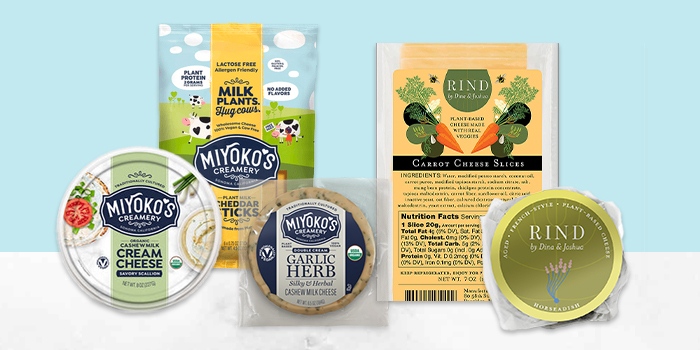
“It’s somewhat wonderful and yet perhaps problematic that these big brands have gotten into the act,” said Schinner. “The products are like most of the other slices and shreds in the marketplace – highly processed concoctions made of just oil, starch, and flavors without any nutrition. While it seems exciting on the surface, it could have the repercussion of creating the reputation that vegan cheese is just junk. Many people already think the word ‘vegan’ is synonymous with junk food, which is problematic.”
Bel’s vegan Laughing Cow snack wedges are made with a combination of almond milk, coconut oil, sunflower oil, pea protein and seasonings, while its plant-based Babybel is made with a combination of starches and coconut oil. Kraft’s NotKraft Singles’ base ingredients also include coconut oil, cornstarch and chickpea protein.
According to data from market research firm SPINS, dollar sales of plant-based cheese slices and snacks fell 3.6% to $66 million over the 52-week period ending October 30, 2022. The overall category also saw sales decline about 2.4% to a little over $189 million during the same period. While the category is expected to grow 13% by 2030, according to Grandview Market Research, projections hinge on the ability of category leader’s to continue to align with consumer preferences and engage with new audiences.
“Launching under an existing brand can help new products get shelf space…[and] the benefit of existing shelf brand blocks make new products easier to find,” said Feria. “However, sometimes new products can fall prey to the halo effect in which consumers may be swayed due to preconceived notions about the company’s sustainable footprint or negative associations with other products.”
Feria said the opposite factors – more challenges to securing shelf space, but products enter the market on “a clean slate” – both help and hinder emerging brands. According to data from SPINS, brands including Esti, Grillies and Kourellas are among the few entrepreneurial brands that currently make both dairy and alternative dairy cheese.
Earlier this year emerging, artisan plant-based cheese maker RIND secured placement in the cheese case at select Whole Foods locations, becoming the first vegan offering to do so. RIND also launched a conventional sliced cheese format this year, differentiating the product with its nutritional profile and base ingredient, carrots, and recently announced two new veggie-forward vegan cheese slices made with parsnip and red bell pepper.
However, for every veggie-based cheese is a new oil-starch-based alternative or tech and AI-powered vegan innovation. Schinner believes these products may help create some initial buzz, but are unlikely to help large corporations target and retain a broad enough consumer group to truly grow the category for the long run.
“For the category to really grow and become mainstream, I think we need to rethink how all of these products are formulated,” said Schinner. “Maybe that’s part of the problem – we think of them as “formulations,’” science experiments, and not real food that is created through natural methods, such as natural fermentation (not precision), and using whole foods. After the initial splash, I’m not sure if long term consumer perception of vegan cheese will be good or succeed in transforming the dairy industry.”

